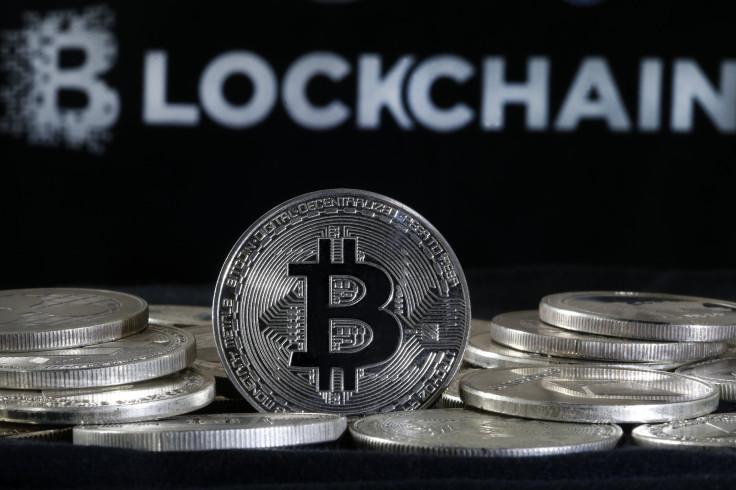Customizable NFTs: Welcome To The Economy Of Everything
The world has been captivated this year as blockchains have powered a surge in activity in the areas of cryptocurrency and decentralized finance. Governments and multinational corporations have rushed to understand the burgeoning new economy being wrought by this wave of innovation. But the most powerful tool for reshaping the global economy remains in its infancy: the non-fungible token, or NFT.
Most of the blockchain use cases that currently exist focus on the transfer of monetary value. Store-of-value cryptocurrencies like bitcoin can protect against fiat inflation; stablecoins focus on borderless financial transfer and protection against volatility. Many other cryptocurrencies focus on the privacy aspects of digital money, and some serve to govern and hold value within the ecosystems of decentralized finance, known as DeFi. Like central bank-issued currencies, each of these assets is fungible: they are interchangeable with other coins of the same type.
But a vast portion of the economy's value is not fungible. Think of all the unique assets that form fundamental components of so many markets: homes, cars, artworks – and the debt and other financial instruments that underlie them and allow them to trade. In order for a truly decentralized economy to emerge, the smart contracts that govern tokens, such as Ethereum's digital asset Ether, must also be applied to these non-fungible assets. They must be tradable, divisible, customizable –- all the ingenuity and flexibility of traditional finance must be accommodated by the blockchain.
Welcome to the future of NFTs.
Customizable NFTs can help build a new economy
To date, headline-grabbing NFTs have mostly been associated with digital art. But this is only scratching the surface of what the technology can do. NFTs effectively make it possible to tokenize any asset – allowing transactions to be executed by smart contract and greatly improving efficiency while reducing the risk of malfeasance or human error. But even this fails to comprehend their true capabilities.
NFTs don't have to be static. The technology now exists to subdivide, multiply, or add to any given NFT – to "remix" them into nearly infinite iterations, permutations and derivatives. This means it is possible to unbundle enterprise-level coordination down to an individual level. With blockchain-powered NFTs, we can create a global economic paradigm of versatility, flexibility and personal choice for companies and their consumers. We can build the economy of everything.
Flexible NFTs can facilitate the creation of new kinds of ownership. For example, token fractionalization allows multiple entities to own and trade pieces of a single tokenized asset (imagine owning and trading 1% of a Monet.) Additionally, NFTs can create layered ownership structures that unbundle a single asset into multiple sets of tradable rights.
Consumers could, for example, purchase redeemable delivery tokens that would enable them to choose which delivery service they would like to ship the items they buy – providing them with access to less expensive or more sustainable options. There's no limit to the extent of customization that NFT-based tradable rights can support.
The world is only beginning to grasp the full potential of how NFTs can revolutionize ownership of and access to products and services. No matter what someone buys or uses in the digital world, it can all be reduced to tradable ownership rights represented by NFTs: redeemable tokens that can be exchanged and spent across a global, blockchain-based economic fabric.

Marketplaces based on interoperable NFTs
NFT-based tradable ownership rights are the way to link all kinds of products and services in the digital world, creating more open, accessible and customizable marketplaces. Instead of transferring money through middlemen in exchange for a deed of ownership, people can directly transfer an NFT representing specific rights.
This process reduces friction by eliminating intermediaries: instead of relying on third-party payment processors, NFT-based transactional flow leverages the speed and transparency of smart contracts. All of this makes the flow of value through marketplaces more secure and trustworthy.
The tokenization of tradable rights can also create efficient, blockchain-based secondary markets for goods and services. These kinds of secondary markets are beneficial for multiple parties. For example, the use of smart contracts means companies will have less need to take custody of goods and information on behalf of their clients, reducing risk and compliance costs. The company benefits, and so do other consumers seeking products and services with limited availability in primary markets.
Crucially, the infrastructure to support an economy based on NFTs doesn't have to be technically challenging. Tokenization infrastructure tools already exist to make the transfer of value through tradable rights seamless: the process can be just as simple for end-users as traditional e-commerce transactions.
The complete application of NFT technology to global markets is only limited by our imaginations. Using smart contract-based tradable rights, we can create an economy that is much more fair, secure and flexible. And by atomizing what access and ownership really mean, we can put power back into the hands of consumers and small businesses.
(Victor Zhang is the project lead at AlchemyNFT, which uses TokenScript technology to enable remixing of NFTs, including signing digital autographs onto artworks)
© Copyright IBTimes 2025. All rights reserved.





















